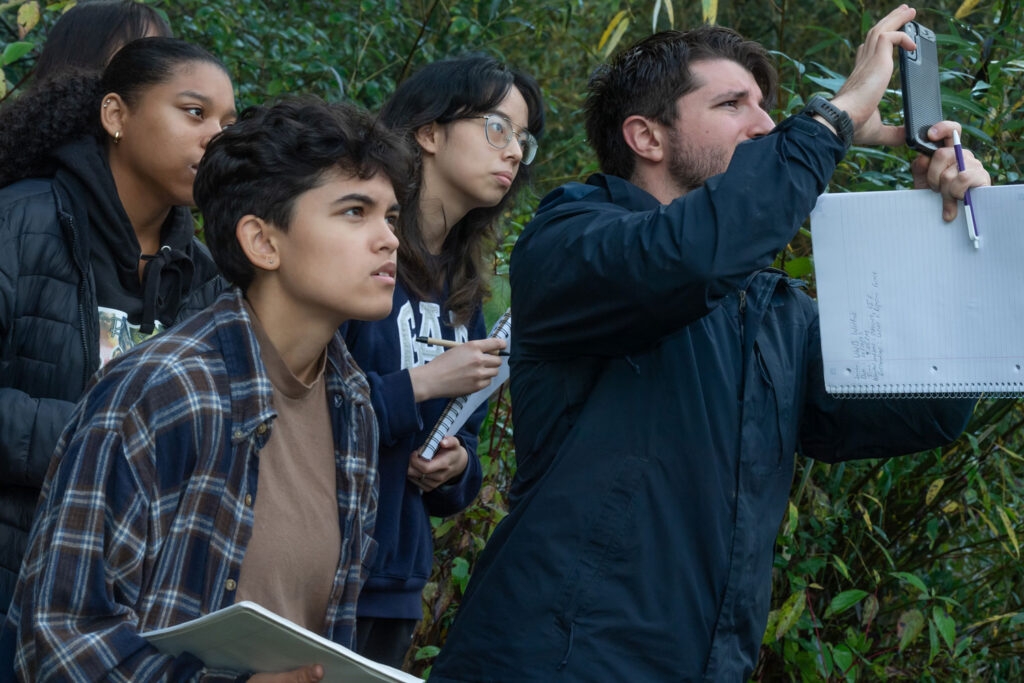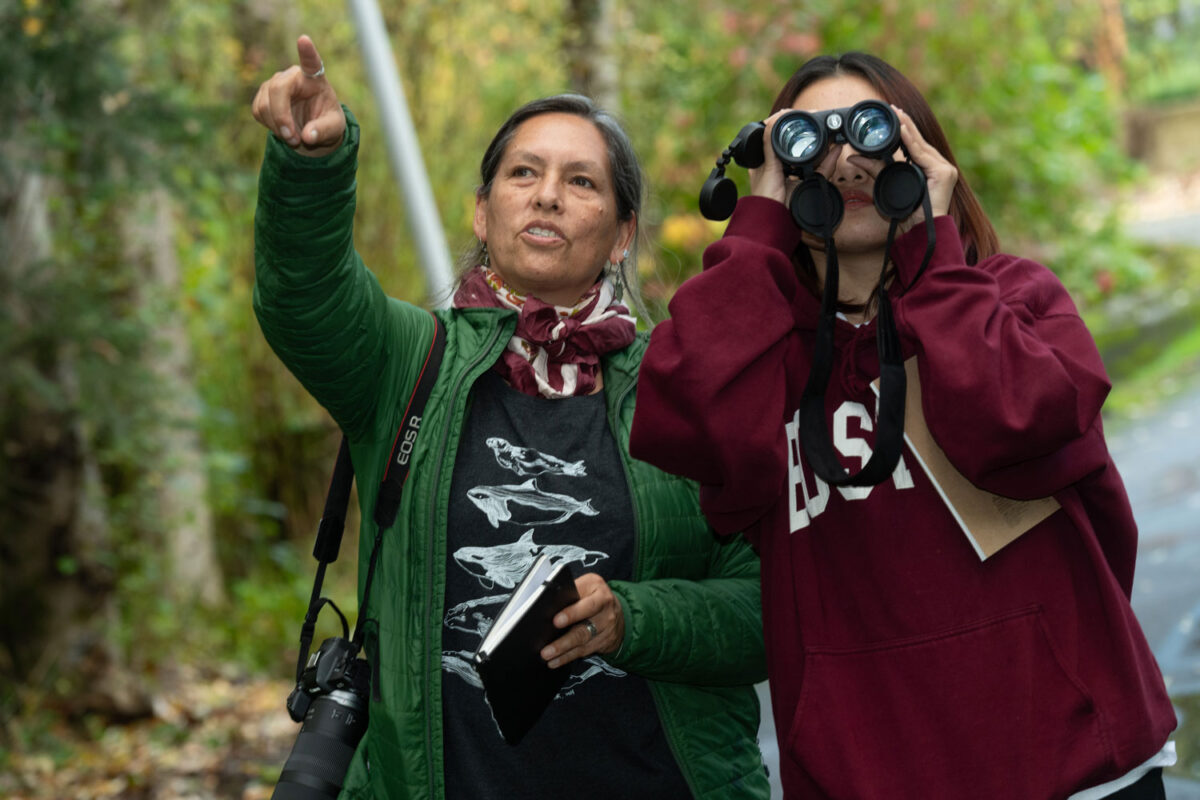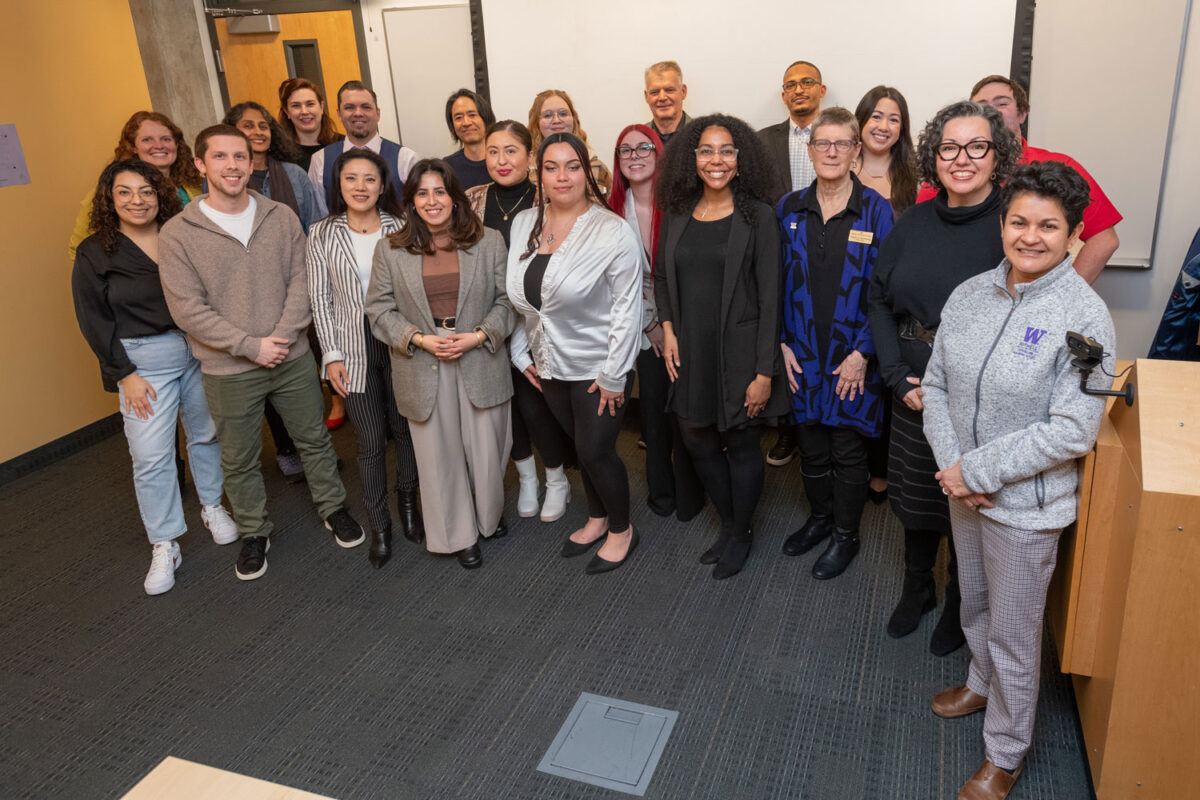Many humans have a special affinity for, and interest in, birds. This is perhaps not surprising given the avian world is so vast and varied.
There are more than 10,000 described bird species, each with their own fascinating ecology and behaviors. Hummingbirds, for example, can fly backwards. Pigeons can recognize human faces. Some birds, such as the Alpine Swift, can fly while sleeping, allowing them to travel for an incredible 200 days straight.
And at the University of Washington Bothell, as many as 16,000 crows fly to campus at dusk to communicate with each other before roosting for the night in the North Creek Wetland.
Dr. Ursula Valdez, lecturer in the School of Interdisciplinary Arts & Sciences, has always been fascinated by birds — so much so that she created a Discovery Core class titled, Urban life and nature: Crows and other birds inhabiting the cities.
“It is inspired by the thousands of crows and other birds that inhabit our campus and our cities, and the influence that those birds have on human life,” Valdez said. “It is also inspired by my personal experience loving and studying birds.”
About birds and better health
While bird watching is one of the most popular hobbies in the United States with an estimated 70 million birders, Valdez said most students haven’t taken the time to observe their feathered friends until enrolling in the class.
“Students can benefit both professionally and personally from bird watching,” Valdez said, “which is why I think it makes for such a great Discovery Core class.”
DCX classes are designed to help first-year and transfer students transition into university life and to introduce them to a variety of subjects they can study, many cross-disciplinary in scope.
As Valdez notes, bird watching “can sharpen students’ observational and research skills — and requires them to pay close attention to detail, skills that are important to hone in any field of study. The personal benefits, however, are just as important as bird watching has a significant impact on people’s mental health,” she said. “With the stresses of college, having something accessible such as bird watching is extremely valuable to students.”
According to a study published in BioScience, spending time in nature and watching birds can help reduce the prevalence of depression, anxiety and stress. Another study published in Ecological Economics found that being around birds was linked to higher happiness levels.
“Usually when I am out on a nature walk, I tend to have my headphones on, and trying to notice birds has forced me to pay close attention to all the sounds around me,” said Nathan Roberts, a transfer student majoring in Biology. “It feels very meditative. It calms my mind and makes it impossible to feel anxious in any capacity. It’s very grounding.”
Bird watching can sharpen students’ observational and research skills — and requires them to pay close attention to detail, skills that are important to hone in any field of study. The personal benefits, however, are just as important as bird watching has a significant impact on people’s mental health.
Dr. Ursula Valdez, lecturer, School of Interdisciplinary Arts & Sciences
Of local and international note
Over the course of the quarter-long class, students learn about the birds that live near the Bothell area and are instructed to keep a naturalist journal — a combination of a diary, sketchbook and scientific log.
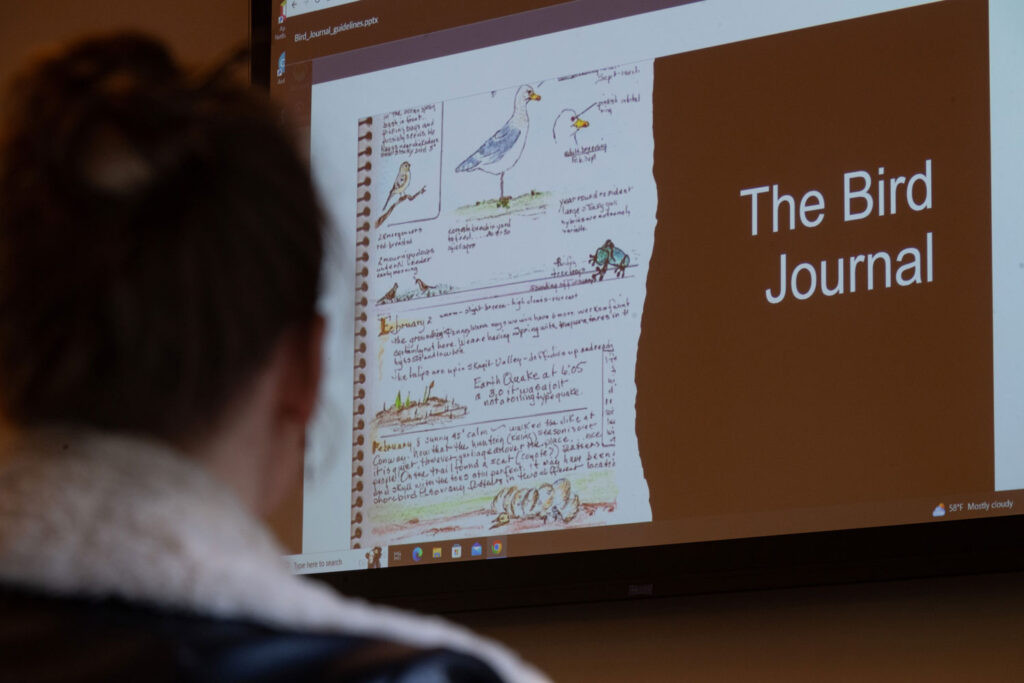
“It is a great way to collect and organize observations, questions, connections and explanations from their time outside with the birds,” Valdez said.
The students’ observations serve another purpose, too, as bird populations can be an indicator of habitat quality. “Many birds have adaptations to specific habitat types, food sources and temperature ranges, and their diversity and population trends can tell us about the health of an ecosystem,” Valdez said. “A lower population of a certain bird species, for instance, could indicate poor ecosystem health whereas higher populations may indicate optimal ecosystem health.”
In addition to connecting with nature, students also get the chance to connect with students from the Graphic Design program at the Pontificia Universidad Católica del Peru. This partnership is made possible by UW Bothell’s Collaborative Online International Learning program, which aims to deepen global engagement of students in the classroom without requiring travel abroad by implementing online collaboration with international partners.
Since 2014, UW Bothell has hosted more than 50 COIL courses in various schools and departments, connecting nearly 1,500 students with peers in different countries.
In classrooms and communities
The students from UW Bothell and PUCP work together to combine information on natural history, culture, art and design to produce infographics that encompass their research on different aspects of urban birds and their connections with humans.
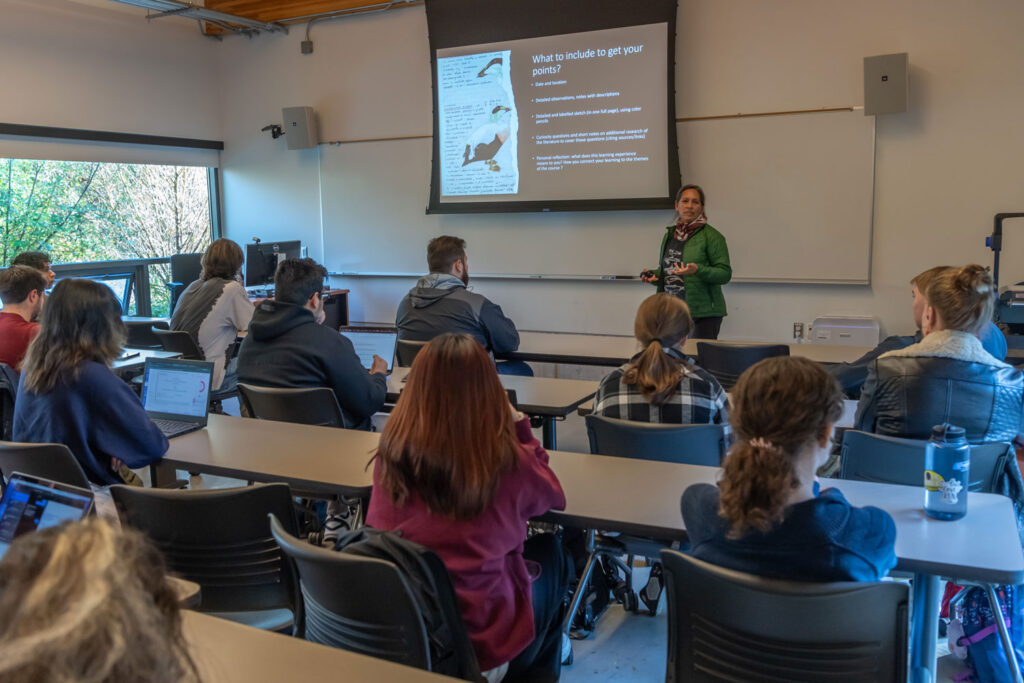
The Bothell students conduct the research and gather data on birds, from their natural history and habitat to each species’ size and overall description to threats different species face. The students in Peru then take all the data and create an infographic that is printed in both English and Spanish, and is later used in public education in the local Bothell community and in various cities in Peru.
“It’s a great way to bring the world to students and give them the possibility to work in an intercultural environment where they have the opportunity to interact and produce public communication pieces with students in other parts of the world,” Valdez said. “It is an interesting experience both for me and my faculty colleagues, and for the students as well.”
Roberts echoed this sentiment, stating, “It’s been really cool working with students from a different part of the world. I didn’t think I would be able to have that kind of experience without studying abroad.
“I have learned a lot about how to communicate, delegate tasks and work in teams.”
For lifelong skills and feathered friends
Valdez recognizes that most of the students who take this first-year class may not go on to research birds in college or in their careers, but she hopes that many will engage more with nature and will develop better skills for observation and attention to detail.
“I hope that my students will continue this as a hobby, or even just put a bird feeder outside of their window,” she said. “There is so much to appreciate about birds, and I hope that my wonder for the species rubbed off on them, if even just a little.”
Join the UW Bothell community for Crow Watch 2023 on Wednesday, Nov. 15, 4-6:30 p.m. This free, public event features expert speakers as well as arts and crafts activities.
